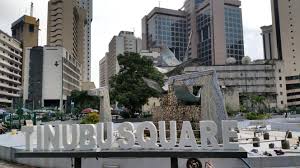Exploring the Dynamic City of Lagos, Nigeria

Introduction
Lagos, Nigeria’s most populous city, holds a significant place in Africa as a bustling metropolis and economic powerhouse. With its vibrant culture, diverse population, and booming economy, Lagos is not just the largest city in Nigeria; it is also a vital hub for trade, art, and innovation in the region. Understanding the dynamics of Lagos is crucial for grasping the broader economic and cultural landscape of Nigeria and Africa as a whole.
Economy of Lagos
As of 2023, Lagos contributes approximately 30% of Nigeria’s GDP, making it a critical economic engine for the country. The city has a broad spectrum of industries, including finance, shipping, manufacturing, and entertainment. The Eko Atlantic Project, an ambitious coastal development, aims to bolster the city’s infrastructure and provide a sustainable environment for residents and businesses alike. Major companies, both local and international, have established their presence here, drawn by the city’s strategic location and investor-friendly policies.
Cultural Richness
Lagos is renowned for its rich cultural tapestry, which is celebrated through various art forms, music, and culinary offerings. The city’s festivals, such as the Lagos Carnival and Eyo Festival, attract tourists from all over the globe. The local food scene is equally vibrant, showcasing dishes that reflect Nigeria’s diverse ethnic groups. Visitors and residents alike are treated to an eclectic mix of traditional and contemporary entertainment, from Afrobeat performances to film festivals, making Lagos a cultural hotspot.
Challenges Facing Lagos
Despite its growth and vibrancy, Lagos faces numerous challenges, including traffic congestion, inadequate infrastructure, and socio-economic disparities. The rapid population increase, driven by rural-urban migration, has put significant pressure on the city’s resources. The government and private sector are working collaboratively to address these issues through urban planning initiatives and investment in public transport systems. Recent efforts to enhance waste management and improve housing conditions are also underway, aimed at creating a more livable environment for its inhabitants.
Conclusion
As Lagos continues to evolve, its importance on both a national and continental scale cannot be overstated. The city’s blend of economic potential, cultural diversity, and challenges provides a microcosm of Nigeria itself. Future developments in infrastructure, advancements in urban planning, and initiatives aimed at addressing socio-economic issues will likely shape Lagos into an even more influential city within Africa and the global arena. For businesses, investors, and tourists, Lagos presents a unique opportunity to engage with one of the fastest-growing cities in the world.







